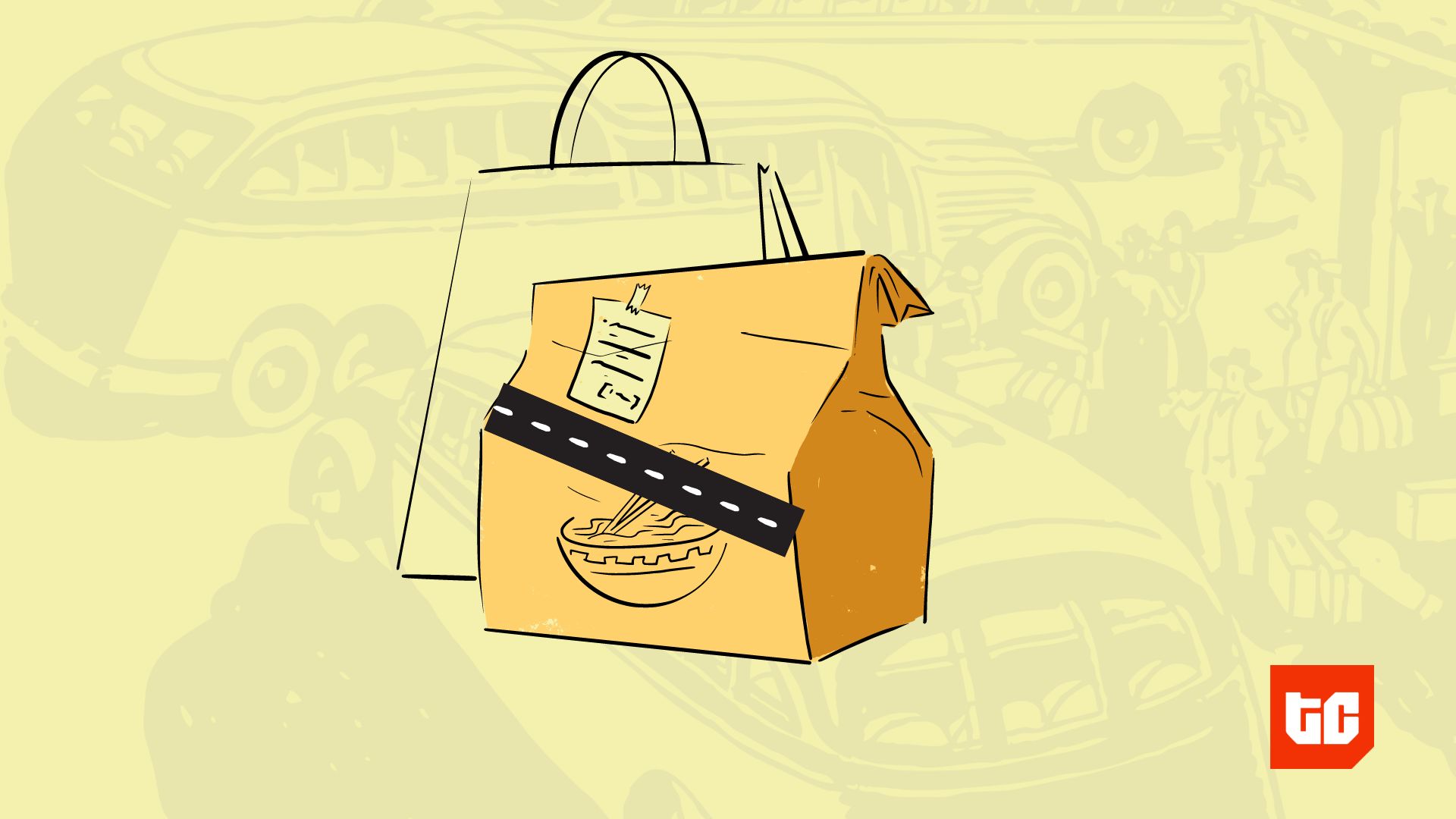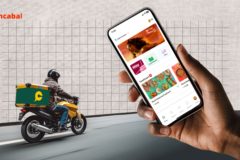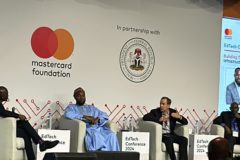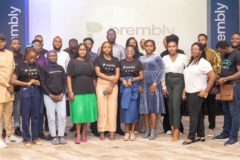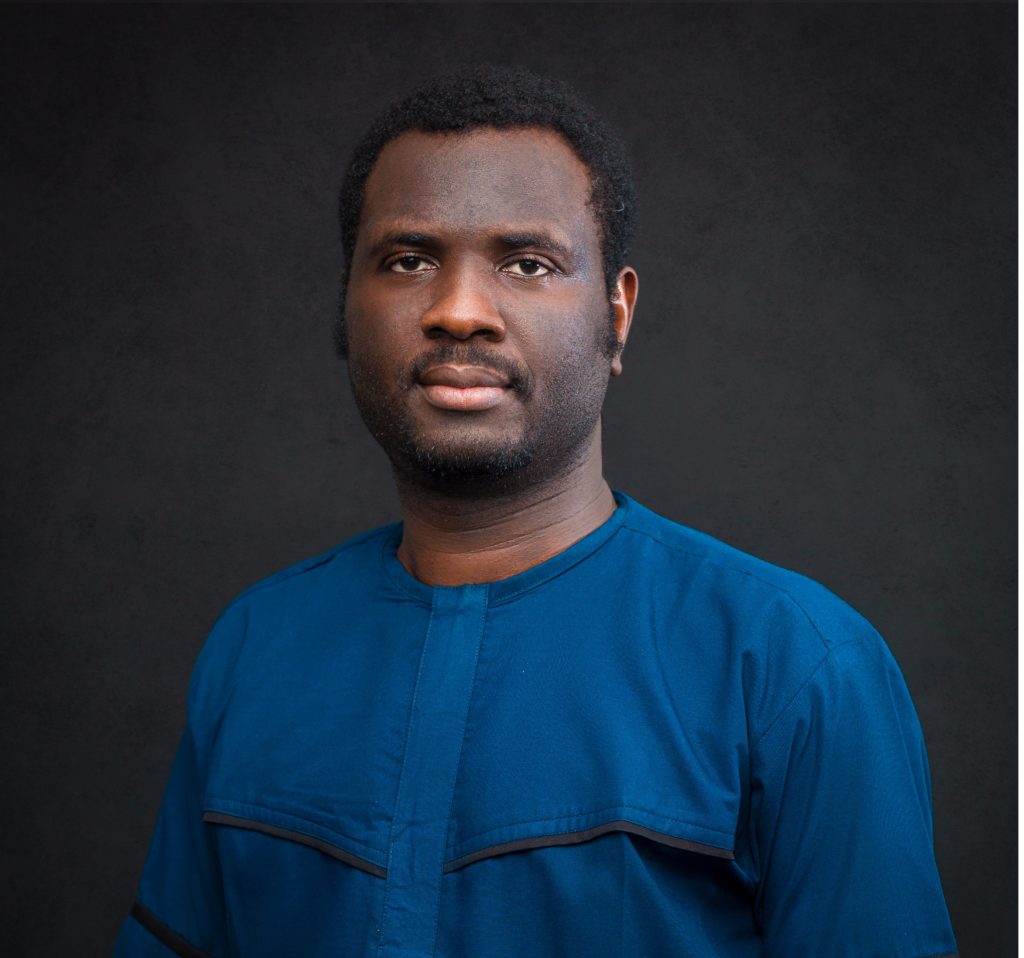
Nigerian mobility tech platform, MAX, recently passed the 100 million kilometre range for their total distance covered. The distance is approximately 260 times the distance between Earth and the moon. To understand how they achieved this feat, TechCabal spoke with Adetayo Bamiduro, a co-founder of the company.
Born and raised in Nigeria, Bamiduro met his cofounder, Chinedu Azodo, at the Massachusetts Institute of Technology. With a career spanning software development, product management, and consultancy, he entered the world of tech entrepreneurship with MAX. Noting that in 2015, Africa faced the challenges of job creation, urban mobility, cashless payments, and gender inclusion, Bamiduro and Azodo decided to use technology to solve these issues. Thus MAX was born.
How was MAX able to scale to several cities in Nigeria?
We are currently in 7 cities and Gbamu Gbamu, a rural community in Ogun state, Nigeria. It’s a small town where we try out our electric 2-wheelers within a rural context, to diversify our focus from urban centres. We realised that Nigeria is split almost evenly between urban and rural areas, so we decided to use Gbamu Gbamu as an entry point.
We faced the typical challenges of scaling a company, and the first step was to deliver a product that works in one city. We did this by building a vehicle subscription product that drivers were very excited about. We embedded features like a wallet, insurance packages, original equipment manufacturer benefits, and the fact that they did not have to have a deposit to access this product. Doing that in Lagos was great, but we knew that this was an African problem. Demand for this product is everywhere; even in developed markets, there are still opportunities for delivering vehicle subscriptions efficiently to commercial drivers.
The impact that we have delivered transcends elevating the income level of the drivers. We also ensure that they comply with government regulations in the city where they operate. We also service commuters by providing access to higher-quality vehicles and well-trained drivers.
What type of impact have you seen with your electric vehicles (EVs)?
We started piloting EVs 3 years ago in Nigeria, and today our fleet has almost 200 EVs across Accra, Akure, Ibadan, and Lagos. It took us a while to develop our bespoke electric motorcycle, the Max M3, and we’re very proud of that.
Scaling our EVs was challenging because we had to ensure that we had a large network of charging stations and battery swapping stations, which required some significant investments and planning. We have been working with strategic partners on that front in Nigeria and Ghana to ensure that we continue to deploy EVs.
We are focused on EVs because the total cost of ownership is lower, and it helps us reduce carbon emissions. We want to deliver a better experience and economics to our drivers and significantly reduce emissions across the continent.
You raised a Series B round last year to expand into Ghana and Egypt. What has been your overall experience so far in expanding outside Nigeria?
Our expansion plans have been going well. The hardest part of running a startup is finding the right team to build with. David Hoyme leads our global expansion right now. He’s done a lot of expansion work in the mobility space in the US. After getting the right people, we still had to develop the right strategy to penetrate these markets. We have also built strong relationships with the regulators and governments.
Fortunately, we have some of the leading investors on the continent who are very well connected. They have been extremely supportive in helping us figure out the right strategy for launching in these countries. Over the next few months, we will make announcements about our market entry into several markets. Our strategy combines organic and inorganic growth. Ghana was organic as we built from scratch there. Some of the other markets might not follow this strategy as we might do acquisitions.
By the end of the year, we should be present in 10–15 cities across 3 to 4 countries on the continent.
What were the criteria that you used to select investors?
Every investor wants to make a significant return on their investment, and from what we have demonstrated it is a foregone conclusion that MAX is building a massive and profitable business. Beyond the money aspect, we have been fortunate to onboard investors that care deeply about our mission. Our mission is to transform mobility in Africa by making it safer, cleaner, more affordable, and more efficient. We want to transform experiences, create jobs, deliver outsized impact, eliminate fatalities, and increase driver income.
Fundamentally, it always boils down to the investors’ alignment with our mission.
We are backed by Breakthrough Energy, an investor-led fund founded by Bill Gates to help roll back carbon emissions on the planet. We have such investors who are driven by a deep conviction to deliver an impact in terms of the economic impact on our drivers and the preservation of the planet.
You recently crossed 100 million kilometres. How did you achieve this while noting the 2020 motorcycle and tricycle ban in Lagos?
Regulatory challenges in Lagos were momentarily a challenge for us, but fundamentally not a challenge for long. Even if you take out the three biggest cities in Nigeria, there is still an extraordinary need for the product that we deliver.
The key challenge we faced was in formalising an industry that has existed for many decades as an informal industry. People’s behaviour tends to be entrenched, and being a pioneer in driving that mindset shift was difficult. Motorcycle riders could hop on an okada [motorcycle taxi] with no helmet, government licence, tax payments, insurance, training, or safety procedures. We took them on a journey to discover what it means to be a professional mobility entrepreneur. They needed to be trained to understand traffic rules, maintenance culture, proper licences, and bank accounts. It took us a while to fully crack that, but the moment we were able to provide these, we proved to the drivers that a technology-driven platform had more benefits, and we started experiencing exponential growth.
The biggest part was just changing mindsets and achieving product market fit.
MAX is known for solving last-mile mobility problems. Are there any plans to expand beyond that?
In terms of vehicles, we have cars, 3-wheelers, and 2-wheelers. We have built strategic partnerships with quite a number of ecommerce and ride-hailing companies on the continent. Last year, we closed a deal with Bolt where we provided vehicle subscriptions to at least 10,000 of their drivers. We have also onboarded a bunch of other partners from various markets and vehicle categories.
Beyond that, we are here to empower drivers and to meet their needs end-to-end, today they get all our embedded features, but we are not stopping there. There are a ton of needs that our commercial drivers need, like energy access needs, so we have a roadmap to continue to deliver all of the products and services that make life much better for commercial drivers and commuters. We will be making a couple of announcements about the products we are rolling out over the next couple of months.
For the first 4 years, we were a motorcycle-only business, but we have diversified and added a bunch of other vehicles to our platform. We have electric 2-wheelers and 3-wheelers, and there are plans to launch electric cars in one of our cities shortly. We will continue to aggressively scale across all vehicle types.
On your website, it is stated that the annual average salary for your drivers is $5,000. How were you able to achieve this standard for your drivers?
One of the biggest challenges that commercial drivers face is downtime. The leading causes of downtime are faulty vehicles, lack of proper government licences and permits, lack of maintenance and service support, etc. When you take away all these complexities and challenges from the drivers and you deliver every single thing to them on a single platform, you significantly increase their uptime. One of the key metrics that we track is how many interruptions our champions have. We call our drivers “champions.” The goal for us is to take it to zero, to make sure any maintenance that they ever have to do is scheduled preventive maintenance.
Our drivers are able to spend more time earning money because we built a platform that enables them to have very minimal downtime.
What metrics have you used to measure your impact since your launch seven years ago?
The first one is the kilometres travelled by our drivers, which recently crossed 100 million. We also look at the number of direct beneficiaries, and we are at over 17,000 drivers that we have impacted. We look at the total number of vehicle subscriptions, and we have done over 8,000 vehicle subscriptions. We look at the number of indirect jobs that we have enabled, which today is well over 1 million. We look at the number of small businesses that we have impacted and that figure is over 400,000. We also look at safety and accident rates, which are more than 100 times better than in the informal sector. We also track the amount of CO2 that we have saved through our zero and lower emission vehicles.
We are proud of the work we have done with state governments in Nigeria, and this work continues to form a critical part of our growth strategy.












